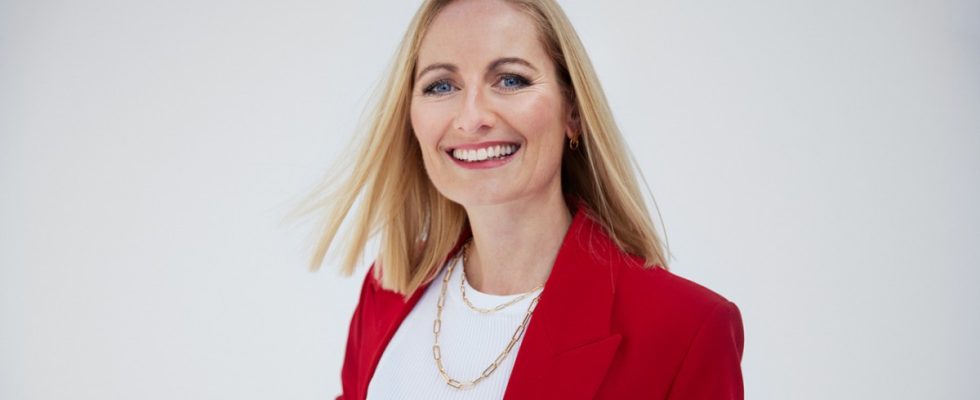She is working on what is probably the biggest project of her career so far: As head of the Munich start-up Unio, Katrin Bacic wants to set up a satellite system for broadband Internet: around 500 satellites that are to orbit the earth by 2027. A project that still seems like science fiction. But the founder can also talk about things that sound more like the 19th century. Gone are the days when it was surprising that a woman ran a high-tech company. But moments of male condescension in patronage show how much women are still struggling in previously male domains.
Bacic experienced that too. “In one of my previous jobs, a male investor once asked me how I do it,” she says. “I should miss my daughter terribly when I’m on a business trip.” A question that a man would probably not get to hear. “The classic aerospace industry is still not very diverse,” says Bacic. It is important for the success of the industry to involve as many different perspectives and talents as possible. According to studies, diverse teams are on average 25 percent more profitable. “Diversity is a key to innovation, that’s what I stand for,” says Bacic. Even as head of Wayra Germany, the innovation hub of the telecommunications group Telefónica, she increased the proportion of companies run by women to a third.
So now space travel. “If it helps, I’m also happy to be a role model,” says Bacic. “As a role model for young women who aspire to leadership positions in previously male-dominated areas, whether in space travel, natural sciences or elsewhere.” The fact that she studied business administration is an advantage. “As a lateral entrant, I add new perspectives to the classic engineering and aerospace background.”
Illustration of the planned satellites to be in space by 2027.
(Photo: Union)
Bacic says space applications were less relevant during her time at Telefónica. “But for about five years, satellite connectivity has been a growing concern for the communications industry.” The car industry is now also interested in high-speed Internet from space. Not only for autonomous driving, because the car is increasingly becoming a mobile office with video conferencing, entertainment programs are also in demand.
Unio would like to set up a flying broadband network in space with its joint venture partners, including the Munich companies Isar Aerospace (small rockets), Reflex (satellites) and Mynaric (laser platforms). The satellite operator SES is to contribute the frequencies. It is not excluded to use other providers. Isar Aerospace could launch two demo satellites in 2025. However, larger rockets are needed to build the constellation. “It is all the more important to build up our own launch vehicle capacities in Europe so that we are not completely dependent on other regions in the future,” says Bacic. She does not see the fact that the Munich start-up Rivada, which wants to set up a similar system, is ordering satellites from the US manufacturer Terran Orbital as a competitive disadvantage for Unio.
The company expects to have to replace the 450-kilogram satellites every seven years because the technology is evolving so quickly. That’s why it’s important for Bacic not to litter Earth’s orbit with it. “We are talking to the Munich company HPS about this, among others. Slowed down by an HPS sail system, our satellites could burn up completely when they re-enter the atmosphere.”
The constellation costs about two billion euros
Unio needs around 20 million euros before the demo mission, and two rounds of financing are planned by the end of 2024. “The construction of the entire constellation over the next few years is expected to cost around two billion euros,” says Bacic. In addition to venture capitalists, she is also hoping for strategic investors. This could be interesting for the automotive industry, and cooperation with classic aerospace companies is also conceivable. “To me, bringing both worlds together is the recipe for success for the space industry of the future.” Unlike Space-X’s Starlink, Unio does not want to address end users as customers, but companies, institutions and governments.
At the same time, Unio is also applying for the EU’s Iris² broadband satellite network. Bacic is convinced that a sovereign Europe must create its own constellation. However, she criticizes that participation is linked to very high requirements, such as experience and the scope of previous projects. “That contradicts what start-ups actually do.” Although they are intended to bring speed, flexibility and efficiency to a project, start-ups are currently intended more as suppliers for the corporations. So “we don’t use their innovation potential”. An application consortium has just been formed, led by Airbus and Thales Alenia Space, among others. However, start-ups and medium-sized companies should be able to join, “which will lead to a more innovative and competitive European space sector,” promises the consortium. But a lot is still open, says Bacic. “If the rules are too rigid or too complicated, I certainly see the risk that we won’t have a European constellation in ten years.”
With Unio, however, Bacic has the chance to prove that start-ups can set up and run a project like this on their own. In the end, her eleven-year-old daughter persuaded her to go to Unio. “Mom, you have to do that,” she told her. “She’s a big space fan, reads Apollo books, loves math and science subjects,” says Bacic. “So the fascination of space travel also plays a major role at home.” It goes without saying that she would also like to fly into space herself. “Anyone who has this opportunity should use it,” she says. “It’s a dream of mine to see the globe from space.”

